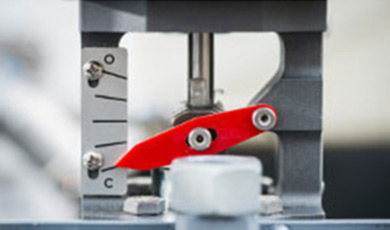- Albanian
- Arabic
- Belarusian
- Bengali
- Czech
- English
- French
- German
- Hebrew
- Hungarian
- Indonesian
- irish
- Italian
- Japanese
- kazakh
- Persian
- Russian
- Thai
- Uzbek
- Vietnamese
theme park equipment for sale
Theme Park Equipment for Sale A Guide to Investing in Fun
Theme parks are places where dreams come to life, offering thrilling rides, immersive experiences, and endless entertainment for visitors of all ages. The thrill of roller coasters, the laughter from carnival games, and the joy of unique attractions all contribute to the magic of these venues. For aspiring theme park owners or those looking to upgrade their existing parks, the purchase of high-quality theme park equipment is essential. This article will explore the different types of equipment available for sale, considerations when purchasing, and tips for making a profitable investment.
Types of Theme Park Equipment
1. Rides and Attractions Rides are the heart of any theme park. They range from high-speed roller coasters to gentle merry-go-rounds. When purchasing rides, it’s important to consider the target demographic of your park. While thrilling rides attract teens and thrill-seekers, family-friendly attractions cater to parents with young children. Some popular options include
- Roller Coasters From traditional wooden coasters to modern steel designs, these rides are essential for an adrenaline-filled experience. - Ferris Wheels Offering stunning views from above, Ferris wheels are iconic attractions that appeal to families. - Water Rides Log flumes and lazy rivers attract guests looking to cool off and have fun during hot summer days.
2. Games and Concessions No theme park is complete without games and concessions that enhance the overall experience. Classic carnival games like ring toss and dart throw attract guests looking to win prizes, while food stands offering everything from cotton candy to gourmet burgers provide a tasty break from the excitement of the rides.
3. Theming and Decor Themed decor creates a cohesive experience across the park. This includes everything from character statues and themed signage to immersive environments that transport guests to different worlds. Investing in quality theming can significantly impact a guest's overall experience, encouraging longer visits and repeat attendance.
4. Safety and Maintenance Equipment Ensuring the safety of guests is paramount in any theme park. It’s crucial to have high-quality safety equipment, including harnesses, seat belts, and restraint systems. Maintenance gear is equally important, allowing staff to keep rides and attractions in prime condition. Regular inspections and upkeep prevent malfunctions that could jeopardize safety.
Considerations When Purchasing Equipment
theme park equipment for sale

1. Quality and Reliability When investing in theme park equipment, prioritize quality and reliability. High-quality equipment not only ensures guest safety but also reduces long-term costs associated with maintenance and repairs. Research manufacturers with a strong track record in the industry to find the best options.
2. Compliance with Regulations Each region may have specific regulations regarding amusement park equipment. Before making a purchase, be sure to understand local safety standards. Compliance is not just about avoiding fines; it’s about ensuring the safety and well-being of your guests.
3. Budget and Financing Options Purchasing theme park equipment can be a significant financial investment. Establish a clear budget and consider financing options. Many manufacturers offer payment plans or leasing options, allowing you to spread out costs over time.
4. Market Trends Keep an eye on emerging trends within the theme park industry. Visitors are increasingly seeking unique and immersive experiences. Investing in innovative attractions, such as virtual reality experiences or interactive rides, can set your park apart from competitors.
Tips for a Successful Investment
- Visit Trade Shows Attending amusement park trade shows can provide valuable insights into the latest technology and equipment available. You’ll also have the opportunity to meet suppliers and negotiate deals.
- Network with Other Operators Building relationships with other theme park operators can provide valuable information and recommendations on where to buy equipment and what to avoid.
- Test Equipment If possible, test the equipment before purchasing. This hands-on experience can help you gauge the ride’s quality and guest experience.
In conclusion, investing in theme park equipment is a critical decision for anyone involved in the amusement industry. By understanding the types of equipment available, considering critical factors before purchasing, and following sound investment strategies, you can create an engaging and successful theme park that attracts and delights guests for years to come. The right equipment not only enhances the quality of the park but also ensures a safe and enjoyable atmosphere where memories are made.
-
Flume Ride-Hebei Zhipao Amusement Equipment Manufacturing Co., Ltd.|Thrilling Water Attraction&Customizable DesignJul.30,2025
-
Flume Ride - Hebei Zhipao Amusement Equipment | Water Coaster, Thrilling DescentJul.30,2025
-
Flume Ride - Hebei Zhipao | Thrilling Water AttractionJul.30,2025
-
Flume Ride: Thrilling Water Attraction by Hebei Zhipao|Log Flume Manufacturers&Flume Ride DesignJul.30,2025
-
Flume Ride-Hebei Zhipao Amusement Equipment Manufacturing Co., Ltd.|Thrilling Water Coaster, Safe DesignJul.30,2025
-
Flume Ride-Hebei Zhipao Amusement Equipment Manufacturing Co., Ltd.|Thrilling Water Attraction, Safe DesignJul.30,2025
